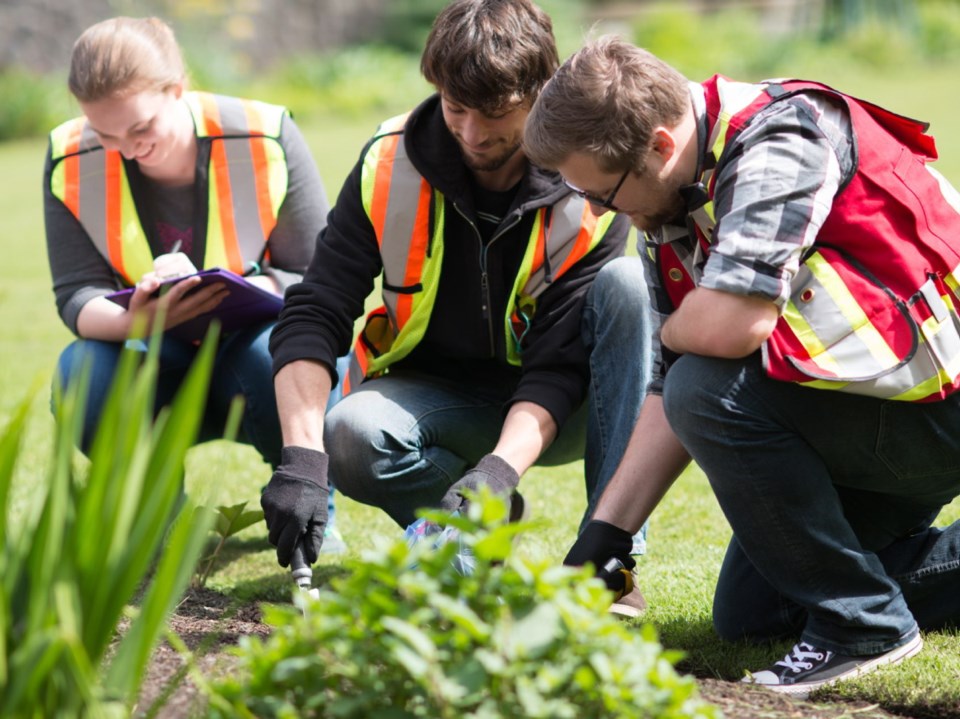The discovery of high levels of lead and zinc in an urban community garden in Vancouver and a desire by the City of Victoria to create community plans that include growing food on city boulevards has led to the establishment of the Healing City Soils project in Victoria.
The goal of the project, a partnership between the Victoria Compost Education Centre, Royal Roads University and DIY Fungi, is to create a soil map of Victoria and Esquimalt (and eventually the entire Capital Regional District) to make people aware of potential contamination in their backyard or boulevard soil.
Students from Royal Roads University’s Bachelor of Science in Environmental Science Program will lead research in each neighbourhood and co-ordinate soil-testing through the campus lab.
Five neighbourhoods will initially be involved in the mapping process, thanks to funding from the City of Victoria and the Victoria Foundation. The project will try to determine the historical use of city land and appraise its current health. With continued funding, the project hopes to expand to complete a comprehensive soil map of the entire region in three to five years.
“The idea is to empower people with knowledge and skills to grow food safely,” said Marika Smith, executive director of the Victoria Compost and Conservation Education Society. “We don’t want to scare them. We just want to give them scientific information in an easy-to-understand format.”
Based on the results from the testing, residents can be educated about what to plant, based on the possibility of contamination on their land or city property.
Royal Roads University students have already tested soil from 100 sites in the region. Those results will be unveiled at the Bachelor of Science in Environmental Science major-project presentation on Aug. 26.
Set to launch in the fall, the interactive map will give soil-health data and potential heavy-metal contamination levels.
“Right now, a lot of people are starting to grow vegetables in their own backyards,” said James Heron, one of the project members.
“Because of the history of industry in different places around Victoria, there can be concerns with the soil in some areas.”
The second component of the program will be in the form of free workshops on soil rehabilitation using phyto (plants), myco (mushrooms) and bacterial (compost) remediation.
“We’re hoping that the project helps open a dialogue about soil,” said Smith.
“After all, you need to grow your soil before you can grow your food.”
For more information, go to compost.bc.ca or bit.ly/2br5OOI.



